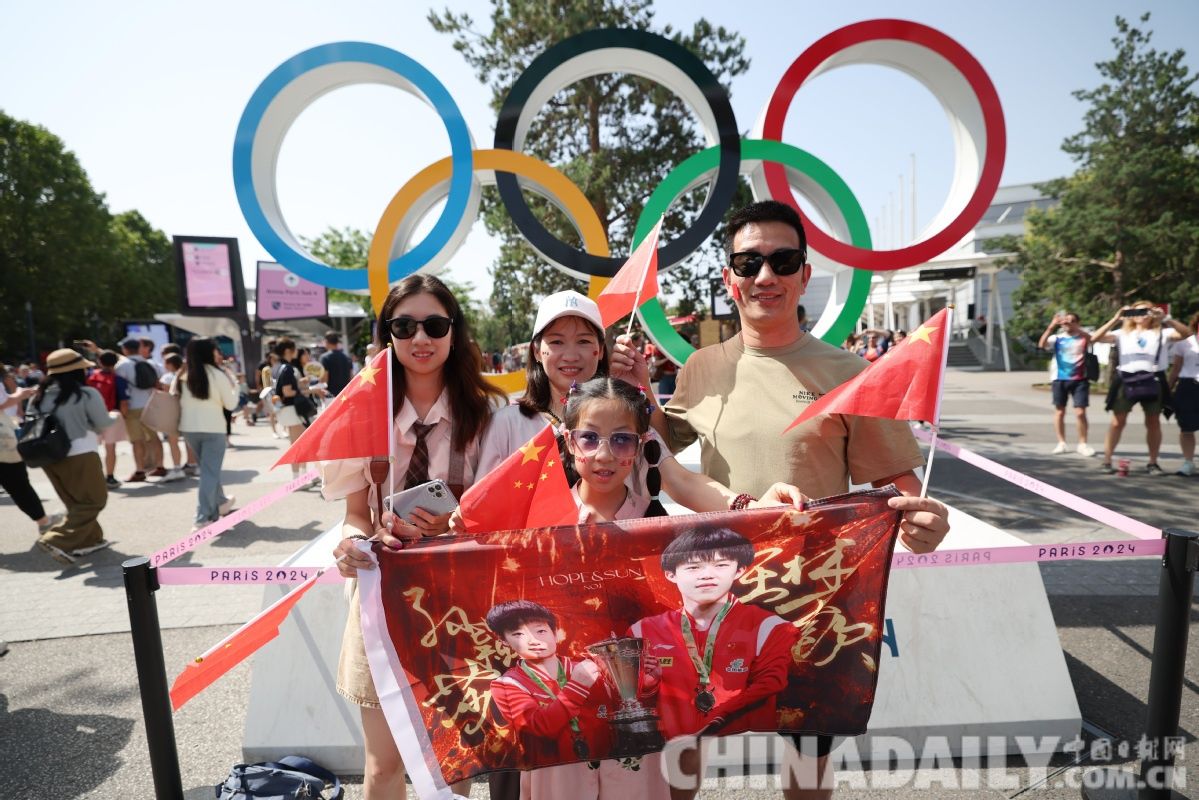source:China Daily editor:Zhang Wenni
 Chinese fans take a picture with the Olympic rings displayed outside the South Paris Arena in Paris, France, on Tuesday. WEI XIAOHAO/CHINA DAILY
Chinese fans take a picture with the Olympic rings displayed outside the South Paris Arena in Paris, France, on Tuesday. WEI XIAOHAO/CHINA DAILY
Unlike four decades ago when half of China used to be glued to TV screens to see Chinese athletes' attempts to win medals, the ongoing Paris Olympic Games have drawn lukewarm response from Chinese audiences.
The seven-hour time difference could be partly responsible for Chinese sports fans' low enthusiasm. But the main reason, I think, is that the Chinese people now take winning Olympic medals more matter-of-factly. They know that the Chinese athletes will do their best, and win medals too. After all, China has been one of the world's major sports powers for the past two decades or so.
Starting my journalism career as a sports writer in the early 1980s and having covered the 1988 and 2008 Olympic Games and many other international sports events, I know how much the Chinese people's attitude toward sports has changed over the years. In the 1980s, China was economically and scientifically an insignificant global player. The country's 15-gold-medal haul at the 1984 Olympics put it into the limelight, and triggered the sports craze among the Chinese people. "To attain good sports results and win glory for the nation" has since become a popular slogan among Chinese athletes as well as the general public.
With China continuing to win more and more Olympic medals — up to now it has won more than 300 Olympic gold medals — sports fans have realized that instead of only standing by and cheering Chinese athletes, they should also take part in sports. Over the past two decades or so, government investment in mass sports has increased dramatically. Physical exercise equipment have been installed in most of the residential complexes and villages, and running tracks laid in most of the parks.
Thanks to the government's efforts and Chinese athletes' excellent performance on the world stage, a sports fever has gripped the whole nation. Statistics show that nearly 40 percent of the 1.4 billion Chinese people aged 7 and above take part in sports or physical activities in 2020 — meaning they either play sports or do physical exercise with an intensity reaching moderate or above for at least 30 minutes three times a week.
Such mass involvement in sports helps experts to identify exceptional talents that can bring glory to the country, and ensures that Chinese athletes will win more medals in Olympics and other international and regional sports championships.
While watching the Paris Games on TV, certain phenomena have caught my attention. For example, at some venues, about half of the spectators were Chinese. And the way they were cheering the Chinese athletes made it seem as if the Games were being held in a Chinese city. I guess most of the Chinese spectators traveled to France to watch the Games, and they were joined by the Chinese people working or studying in Europe. Such a spectacle was unthinkable when I was covering sports as a China Daily journalist. Four decades ago, not a single Chinese person could be seen among the spectators, because in those days the Chinese people couldn't afford to pay for the travel to and accommodation in a foreign country.
Another salient feature is the self-confidence of Chinese athletes — not only during the competitions but also when meeting journalists. They talk about their own performances, their future plans and their counterparts' strategies as if chatting with friends. Some speak fluent English. Their communication skills are in total contrast to the Chinese athletes' nervousness when interviewed by journalists in the old days.
One more thing that amazes me is the size of China's Olympic reporting team in Paris. More than 2,000 China Media Group reporters, editors and technical staff are covering the Paris Games. And if the reporters from other media outlets are added, the number of Chinese journalists in Paris could be well over 2,500. In my time, less than 100 reporters were able to go abroad to cover sports events like the Olympics.
These three changes signify the economic and social development China has achieved over the past four decades or so. As a retired sports writer, I wish all the best to our athletes, and hope the younger generation of sports writers does a better job of promoting the Olympic Spirit.
The author is former deputy editor-in-chief of China Daily.